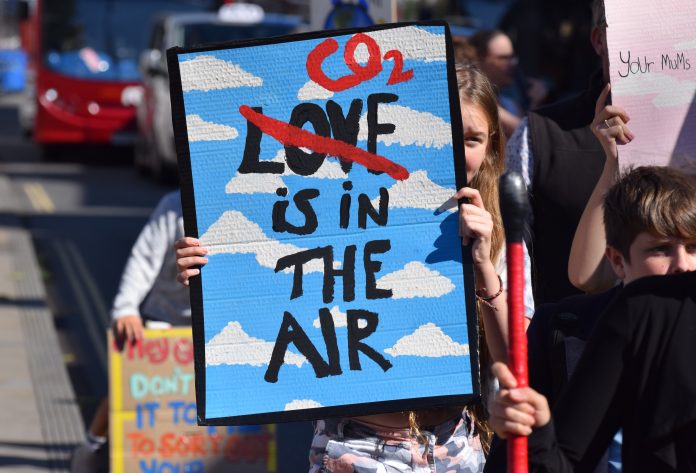Cecilia Van Cauwenberghe from Frost & Sullivan’s TechVision Group shares her perspective on the correlation between global climate change and human health
Present and future climate change impacts on human health are commonly associated with each other. However, an in-depth understanding of climate change impacts on human health is needed in order to face these new worldwide challenges. The following paragraphs present the most relevant studies published in the past months exclusively dedicate to the correlation between human health and global climate change.
Direct and indirect impact on human health
A recently published state-level assessment of future climate change impacts on human health using outputs from advanced climate model projections for this century (Filippelli et al., 2019), includes future projections exhibiting a sharp increase in extreme heat events, which would lead to superior potential vulnerability to heat disasters. According to the study, these changes would strongly impact the health of people predisposed or affected with cardiopulmonary conditions, especially elderly, children, and vulnerable communities.
The study also mentioned difficulties facing warmer winters and flooding, which is highly correlated with a higher risk for the expansion and virulence of a number of vector-borne diseases (Lyme disease, West Nile Virus, malaria, dengue, Zika, and Chikungunya, among many others). No less important, agriculture would be seriously impacted by the onset of new bacteria and mycotoxins due to elevated heat and humidity. Therefore, planning future protective and adaptive policies demand a profound research assessment on climate change and health with an emphasis on infectious diseases.
The four themes correlating human health and climate change
In 2020, a bibliometric method using SciVerse Scopus was published (Sweileh, 2020). The study intimately associated health-related literature with infection-related literature from 1980 to 2019 under the climate change framework. The researchers highlighted four themes as the pillars for analysing climate change impact on human health: 1) climate change and infectious diseases; 2) climate change, public health and food security; 3) heatwaves, mortality, and non-communicable diseases; and 4) climate change, air pollution, allergy, and respiratory health.
Other studies also emphasise the existence of scientific evidence on the impact of climate change on human health (Orimoloye et al., 2019). According to various researchers, the early identification of research progress and divergences in how human society may respond to, adapt to, and prepare for global climate changes becomes crucial in the light of even though the causes are hardly debated, climate change is a fact. Climate variability, disaster risk, increased temperature and radiation, extreme weather-related illness, social vulnerability, are some of the major causes of the onset of underlying conditions such as skin cancer, stroke, heart disease, acute pulmonary conditions, and infectious diseases, among many others. Prevention and control occupy the agenda in public health programmes and other disease control agencies. The U.S. National Toxicology Program (NTP) is an example of this trend.
A team of researchers from Department of Pharmaco-Toxicology and Pharmacokinetics, Faculty of Medicine & Biomedical Sciences, University of Yaoundé 1 in Cameroon (Grace et al., 2019) depict the challenges of food production systems under imminent global climate change consequences. According to the investigators, the biosecurity of food crops would be critical if global climate change continues to escalate with plant pathogens and diseases causing severe damage.
Final remarks
State-of-the-art literature strongly correlates global climate change with severe impacts on human health. Particular conditions such as cardiovascular and cardiopulmonary diseases, cancer, and infectious disease are highlighted. However, the researchers also emphasise in the fact that climate change also impacts human health from a psychosocial and mental perspective. Healthcare systems need to focus on innovations, policies, and preparedness for forthcoming challenges.
Acknowledgements
I would like to thank all contributors from industry involved with the development and delivery of this article from Frost & Sullivan.
References
- Evans, G.W., 2019. Projected behavioral impacts of global climate change. Annual review of psychology, 70, pp.449-474.
- Filippelli, G.M., Freeman, J.L., Gibson, J., Jay, S., Moreno-Madriñán, M.J., Ogashawara, I., Rosenthal, F.S., Wang, Y. and Wells, E., 2020. Climate change impacts on human health at an actionable scale: a state-level assessment of Indiana, USA. Climatic Change, pp.1-20.
- Grace, M.A., Achick, T.F.E., Bonghan, B.E., Bih, M.E., Ngo, N.V., Ajeck, M.J., Prudence, G.T.B. and Ntungwen, F.C., 2019. An Overview of the Impact of Climate Change on Pathogens, Pest of Crops on Sustainable Food Biosecurity. International Journal of Ecotoxicology and Ecobiology, 4(4), p.114.
- Orimoloye, I.R., Mazinyo, S.P., Kalumba, A.M., Ekundayo, O.Y. and Nel, W., 2019. Implications of climate variability and change on urban and human health: A review. Cities, 91, pp.213-223.
- Sweileh, W.M., 2020. Bibliometric analysis of peer-reviewed literature on climate change and human health with an emphasis on infectious diseases. Globalization and Health, 16(1), pp.1-17.











